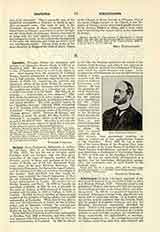

Schatzgeyer, CASPAR, a foremost opponent of the Protestant Reformers; b. at Landshut in 1463 or 1464; d. at Munich, September 18, 1527. For many years he was guardian at Munich, and since 1517 first provincial of the Strasburg province of the Friars Minor, and definitor-general. In 1523 he was appointed inquisitor for Germany. Schatzgeyer energetically opposed the new errors both in word and writing. It is in great part due to him and his confreres that the Catholic Faith held its ground in southern Germany, and that the Bavarian Government strenuously defended its cause. Within a few years he published upwards of twenty-three works in which he defended the Catholic position on such doctrines as grace, the veneration of saints, monasticism, the indissolubility of marriage, the Mass, purgatory, etc. His writings have received the highest praise from John Eck. Who collected and published them at Ingolstadt in 1543. The dukes of Bavaria recommended them to all ecclesiastics.
THOMAS PLASSMANN

